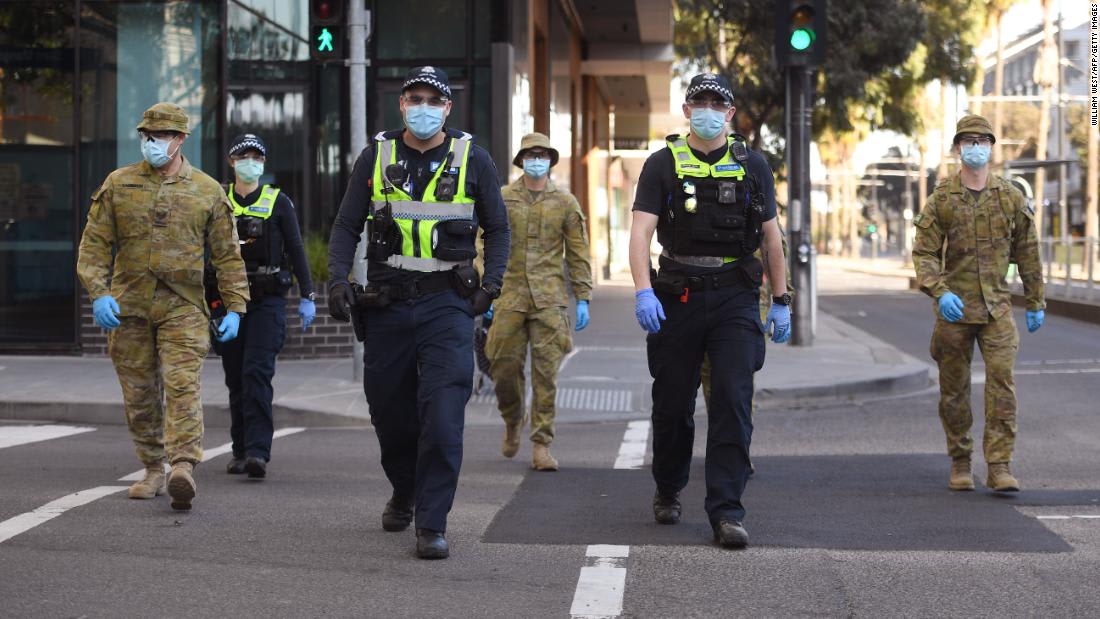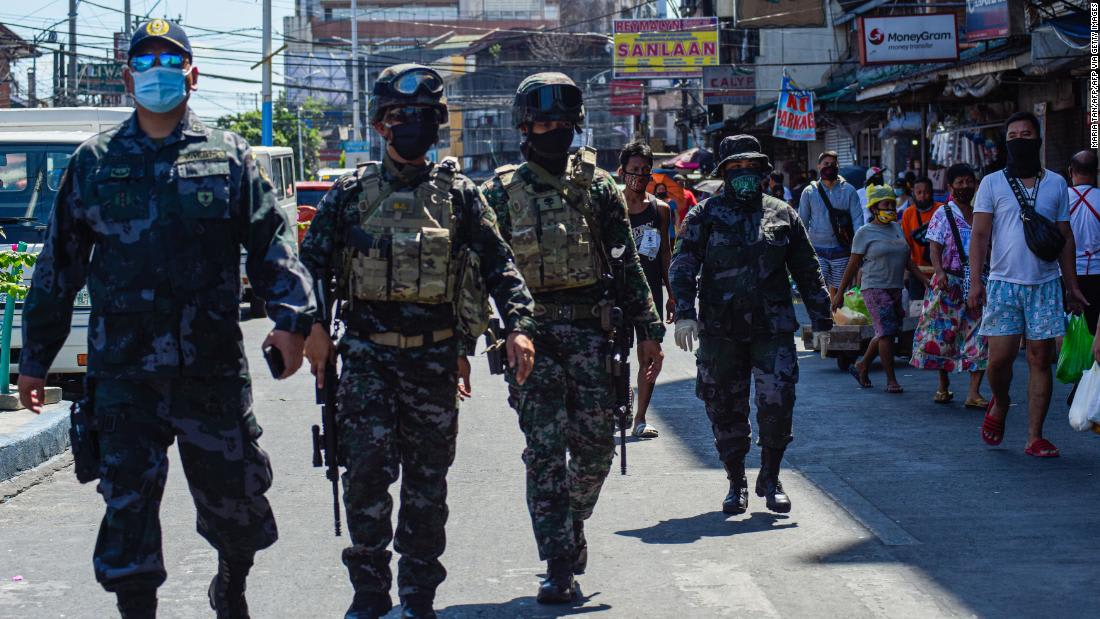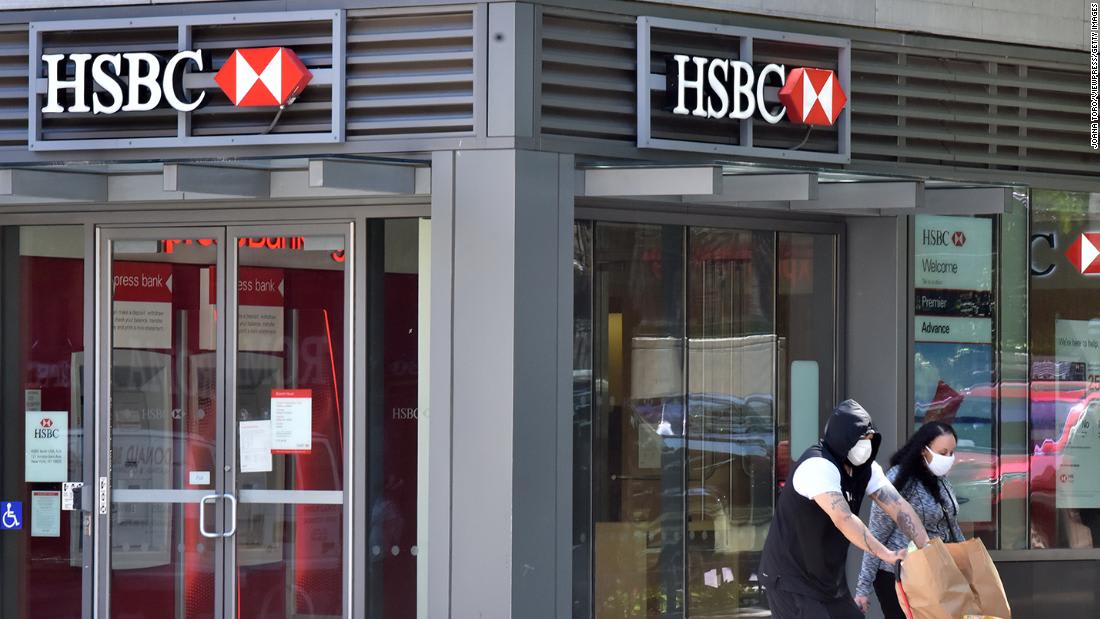90-minute coronavirus tests to be rolled out in UK
From CNN's Sharon Braithwaite in London
The British government has procured "millions" of two separate coronavirus tests that will be able to detect the virus in 90 minutes, the UK department of health said Monday.
Both tests will be able to detect Covid-19 and other winter viruses such as flu and respiratory syncytial virus in 90 minutes and will not require a clinical setting, the department said in a statement.
The tests will be rolled out in hospitals, care homes and labs across the UK next week.
“We’re using the most innovative technologies available to tackle coronavirus. Millions of new rapid coronavirus tests will provide on-the-spot results in under 90 minutes, helping us to break chains of transmission quickly,” Health Secretary Matt Hancock said in a statement.
The department of health has said that the tests “will hugely increase testing capacity ahead of winter, delivering fast results that will help to break chains of transmission quickly.”
One test will analyse DNA in nose swabs, and the other will process swab and saliva samples to detect the presence of Covid-19 in 60 to 90 minutes.
China says Hong Kong's election delay is "reasonable and lawful"
From CNN's Sarah Faidell
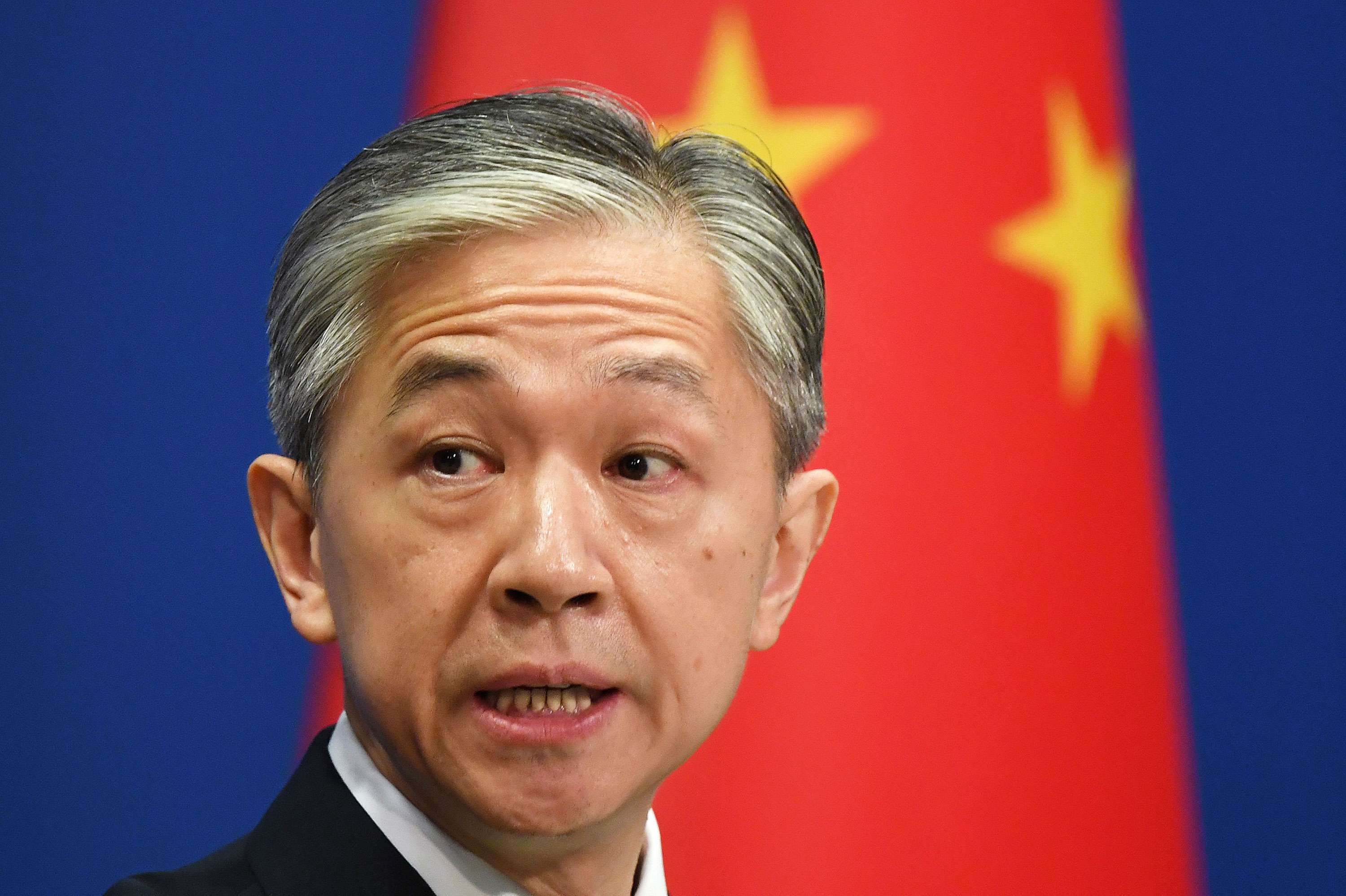 Chinese Foreign Ministry spokesman Wang Wenbin speaks at a daily briefing on July 24 in Beijing. Greg Baker/AFP/Getty Images
Chinese Foreign Ministry spokesman Wang Wenbin speaks at a daily briefing on July 24 in Beijing. Greg Baker/AFP/Getty ImagesChina’s Ministry of Foreign Affairs (MOFA) said Monday that Hong Kong’s legislative council elections are considered local elections in China, adding no foreign entity has “any right to interfere and nothing could justify such interference.”
Here's some background: On Friday Hong Kong’s Chief Executive Carrie Lam used a colonial-era emergency regulation to postpone the September Legislative Council elections by a year due to the growing Covid-19 outbreak in Hong Kong.
Some pro-democracy lawmakers accused the government of wanting to avoid a potential loss following China's imposition of a new national security law on the city.
MOFA spokesperson Wang Wenbin said Monday that the decision was a “legitimate measure to protect Hong Kong residents safety and health” and a way to ensure the elections “can be safe, fair, and just.”
“There are many precedents postponing elections because of disasters such as an epidemic. The Hong Kong SAR government's decision is in line with this common practice, is legitimate, reasonable, and lawful,” Wang said.
Australia is imposing strict new virus prevention measures in the state of Victoria
From CNN's Helen Regan and Angus Watson
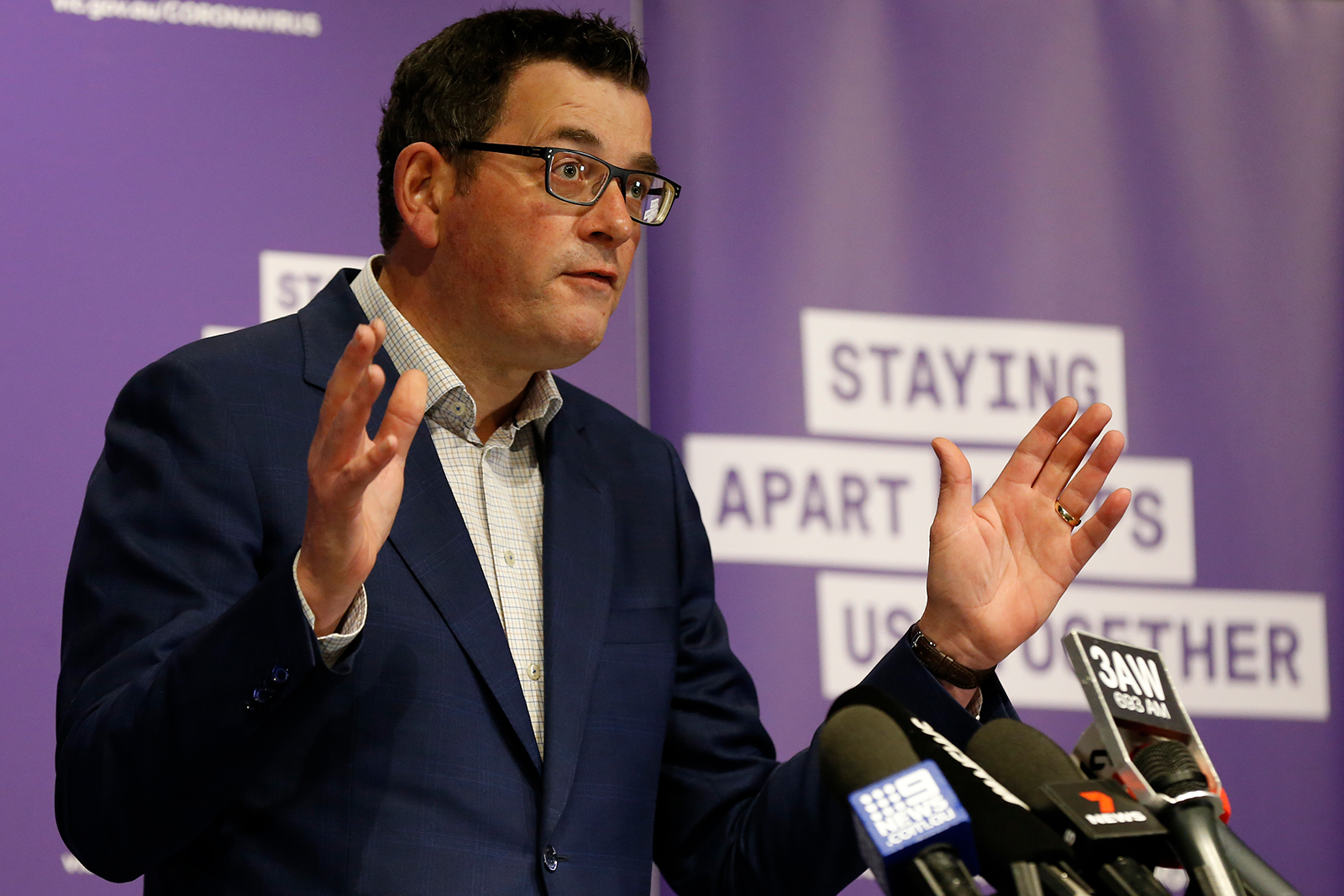 Victoria Premier Daniel Andrews speaks to the media at the daily briefing in Melbourne on August 3. Darrian Traynor/Getty Images
Victoria Premier Daniel Andrews speaks to the media at the daily briefing in Melbourne on August 3. Darrian Traynor/Getty ImagesAbout 5 million people in Australia's second-most populous city, Melbourne, are contending with some of the harshest restrictions ever imposed on the city after authorities declared a "state of disaster" on Sunday.
Police patrolled deserted streets Sunday night, enforcing an overnight curfew from 8 p.m. to 5 a.m. as part of stage-four lockdown measures imposed to battle a widening coronavirus outbreak.
Those restrictions include a curfew in Melbourne for the next six weeks, a ban on wedding gatherings, and schools must go back to online classes. Only one person per household is allowed to leave their homes once a day -- outside of curfew hours -- to pick up essential goods, and they must stay within a five-kilometer (3.1 miles) radius of their home.
On Monday, further businesses restrictions were announced, including the shuttering of nonessential industries.
The state of Victoria, of which Melbourne is the largest city, recorded 429 Covid-19 infections on Sunday, down from 671 cases the day before, according to Victoria's Chief Health Officer professor Brett Sutton. Thirteen new deaths were also announced, bringing the state's total to 136, and there have been a total of 11,937 confirmed infections.
Sunday's announcement underscores how quickly early success in containing the virus can unravel.
In May, Australia was held up as a global model for its handling of the outbreak, which started with early measures to bar entry from high-risk countries. Stricter curbs on social gatherings, expanded testing, restaurant and bar closures, followed as cases rose, with some states sealing their borders.
But Covid-19 cases in Victoria have risen suddenly in recent weeks, with many new infections in elderly care homes and among health care workers. Eight of the 13 new deaths on Sunday are linked to known outbreaks in elderly care facilities.
"This six-week period is absolutely critical," said Victoria state Premier Daniel Andrews in a daily press briefing on Monday. "This is a very tough day, and there will be many more of those until we get to the end of this."
Read more:
Critics accuse the Philippines government of using the coronavirus lockdown to crack down on dissent
Analysis by CNN's Ben Westcott and Anne Lagamayo
Questioning the world's toughest coronavirus restrictions can be a risky business in the Philippines.
In mid-March, Philippine President Rodrigo Duterte ordered parts of the country to go into a quarantine that would eventually last up to 80 days and become one of the world's longest and strictest lockdowns.
Protests against job losses and food shortages during that period were met with a strong police response and mass arrests. In April, Duterte publicly said police should "shoot ... dead" anyone who violated virus restrictions.
"I will not hesitate. My orders are to the police, the military and the barangays: If they become unruly and they fight you and your lives are endangered, shoot them dead," Duterte said during a speech.
Though restrictions were eased in June, owing to concerns around the econony, coronavirus cases have since risen with the Philippines now reporting the second-highest number of confirmed cases in Southeast Asia.
The country announced its highest single-day jump in new coronavirus infections on Sunday, according to CNN affiliate CNN Philippines, with 5,032 confirmed cases in 24 hours. The Philippines has more than 100,000 coronavirus cases in a population of 106 million.
Read more:
HSBC profits plunged 65% due to the pandemic
From CNN Business' Michelle Toh in Hong Kong
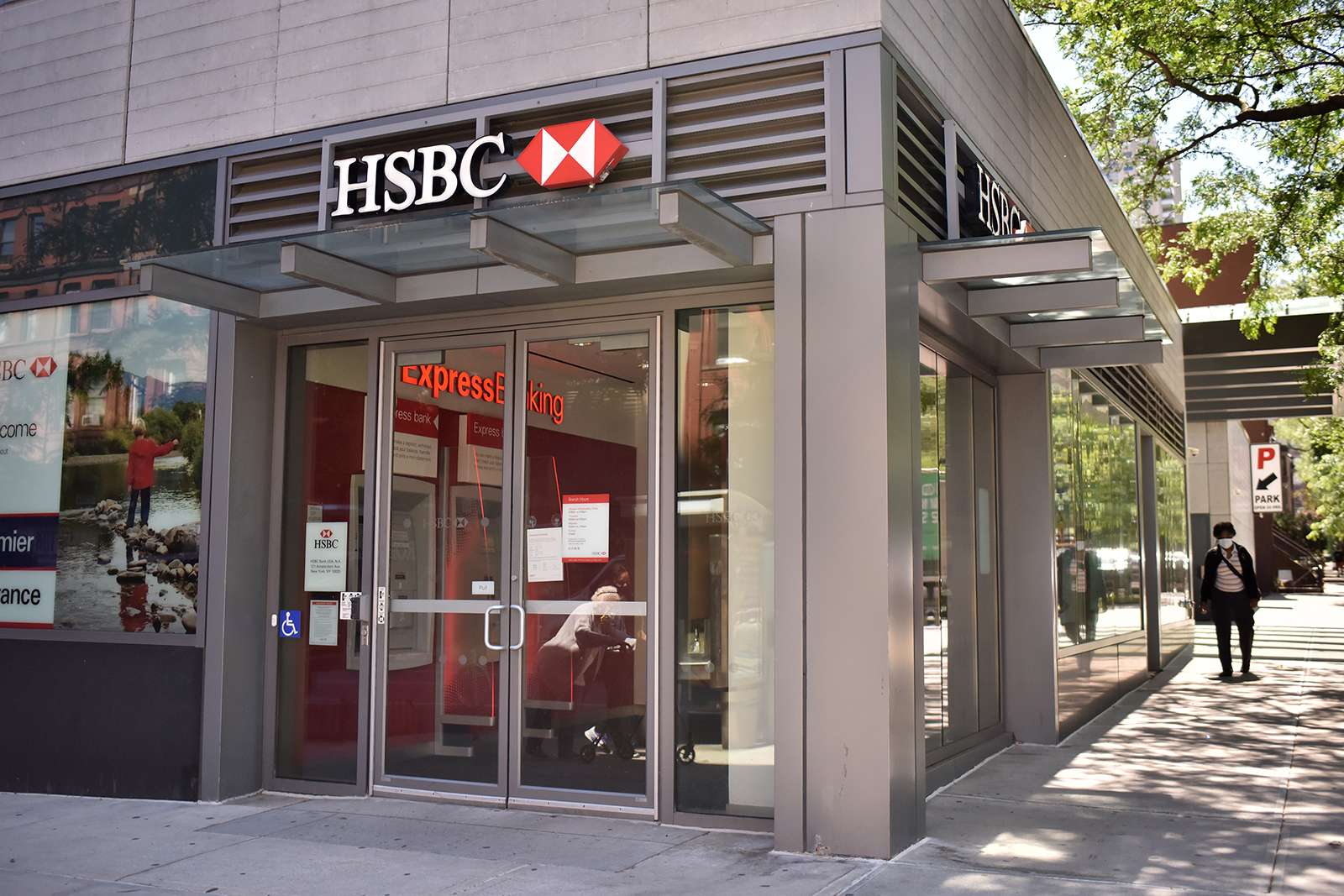 Joana Toro/VIEWpress/Getty Images
Joana Toro/VIEWpress/Getty ImagesHSBC's profits plunged in the first half of this year as the bank was weighed down by the coronavirus crisis.
The London-based lender said that pre-tax profit in the first half of the year fell 65% to $4.3 billion compared to the same time last year as revenue fell and as credit losses were worse than expected.
"Our first half performance was impacted by the Covid-19 pandemic, falling interest rates, increased geopolitical risk and heightened levels of market volatility," CEO Noel Quinn said in a statement.
The bank added that expected credit losses for 2020 could hit as much as $13 billion this year, worse than earlier estimates "given the deterioration in consensus economic forecasts."
The company also disclosed a $1.2 billion writedown due to an "impairment of software intangibles, mainly in Europe."
Falling income didn't help either. The bank's revenue tumbled 9% in the first half versus the same time last year, hurting profits even more.
Read more:
The leader of a South Korean religious group was arrested for violating an anti-virus law
From CNN's Yoonjung Seo in Seoul, South Korea
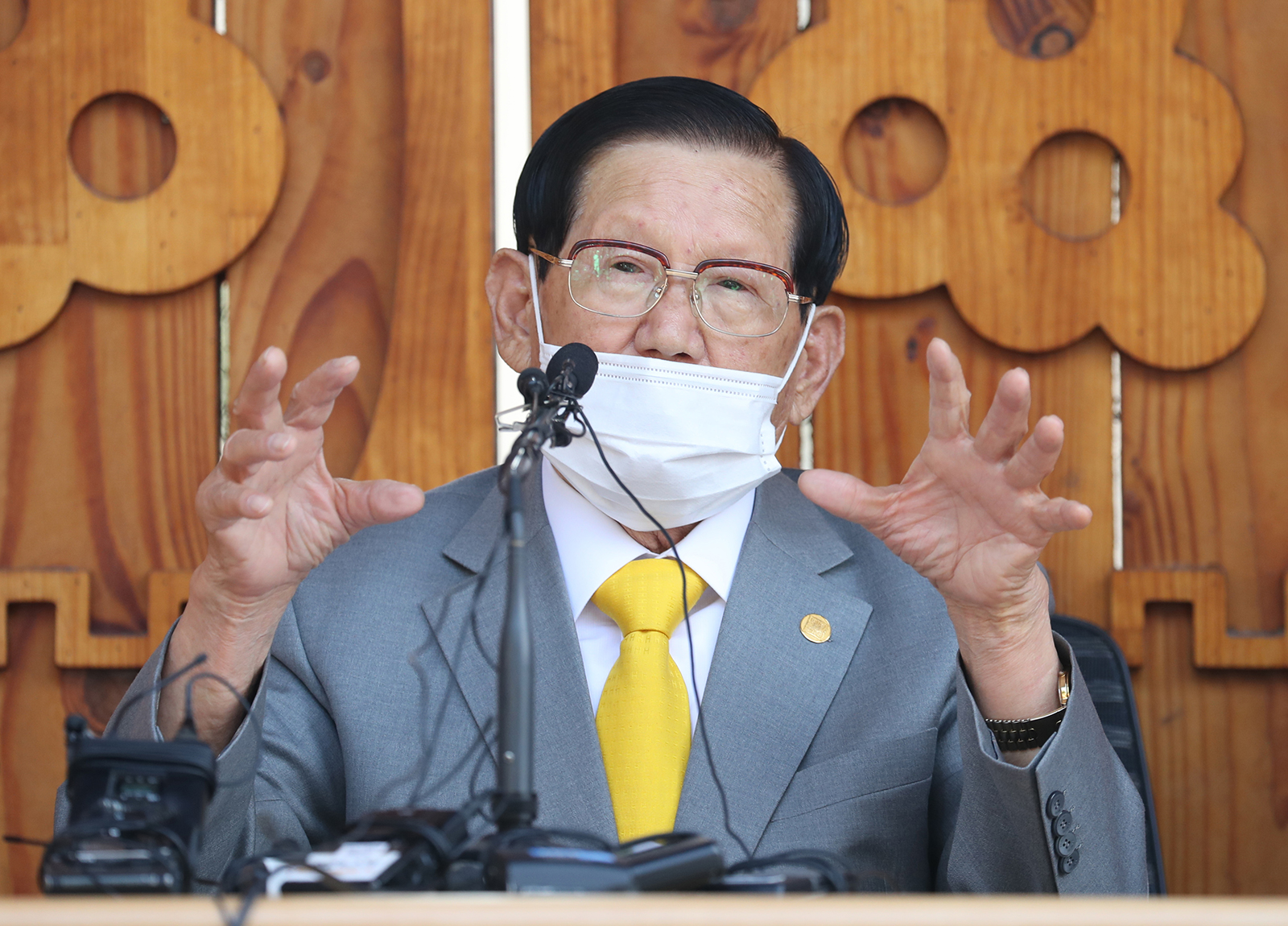 Lee Man-hee, leader of the Shincheonji Church of Jesus, speaks during a press conference at a facility of the church in Gapyeong, South Korea on March 2. Pool/AFP/Getty Images
Lee Man-hee, leader of the Shincheonji Church of Jesus, speaks during a press conference at a facility of the church in Gapyeong, South Korea on March 2. Pool/AFP/Getty ImagesLee Man-hee, the leader of the South Korean religious group Shincheonji, was arrested after being charged with embezzlement and violating South Korea's Infectious Disease Control and Prevention Law.
Lee was accused of submitting false information about the group's gatherings and congregation list to the health authorities. Shincheonji is believed to be at the center of South Korea's first major outbreak of Covid-19 in February.
Shincheonji said in a statement that Lee has fully cooperated with authorities and called his arrest "regrettable."
A member of Shincheonji was the 31st person South Korea who was confirmed to have contracted Covid-19. After the patient's diagnosis, health authorities said they faced difficulty tracing the patient's close contacts. South Korean police deployed hundreds of officers to trace members of the group who could not be reached.
Lee issued a public apology in March, but denied accusations that he and his group have been hampering the health authorities’ efforts to contain and prevent infections. At the time, South Korea had identified more than 4,200 cases of Covid-19, more than any country except mainland China. More than half of those were tied to Shincheonji.
Japan just recorded a fifth day in a row of 1,000-plus cases of Covid-19
Japan recorded 1,331 new coronavirus cases on Sunday, the country’s Ministry of Health announced on Monday, the fifth day in a row the country has identified more than 1,000 infections.
Of the 1,331 new cases in the country, 292 were recorded in the capital Tokyo, while Osaka reported 194 and Okinawa reported 64. One person died from Covid-19 on Sunday, authorities said.
Total cases: Japan has so far recorded a total of 39,399 coronavirus cases and 1,025 deaths.
What's happening on the ground: Authorities in Tokyo has requested restaurants and bars that serve alcohol to close at 10 p.m. to mitigate the risk of contracting the virus indoors.
Okinawa, Japan's southern island, is in a state of emergency because of rising cases. Authorities there are asking the public to stay home and avoid unnecessary trips, but stopped short of closing down the island to holiday visitors. The state of emergency is set to end August 15
China reports 43 new coronavirus cases, including 36 locally transmitted infections
From CNN's Isaac Yee in Hong Kong
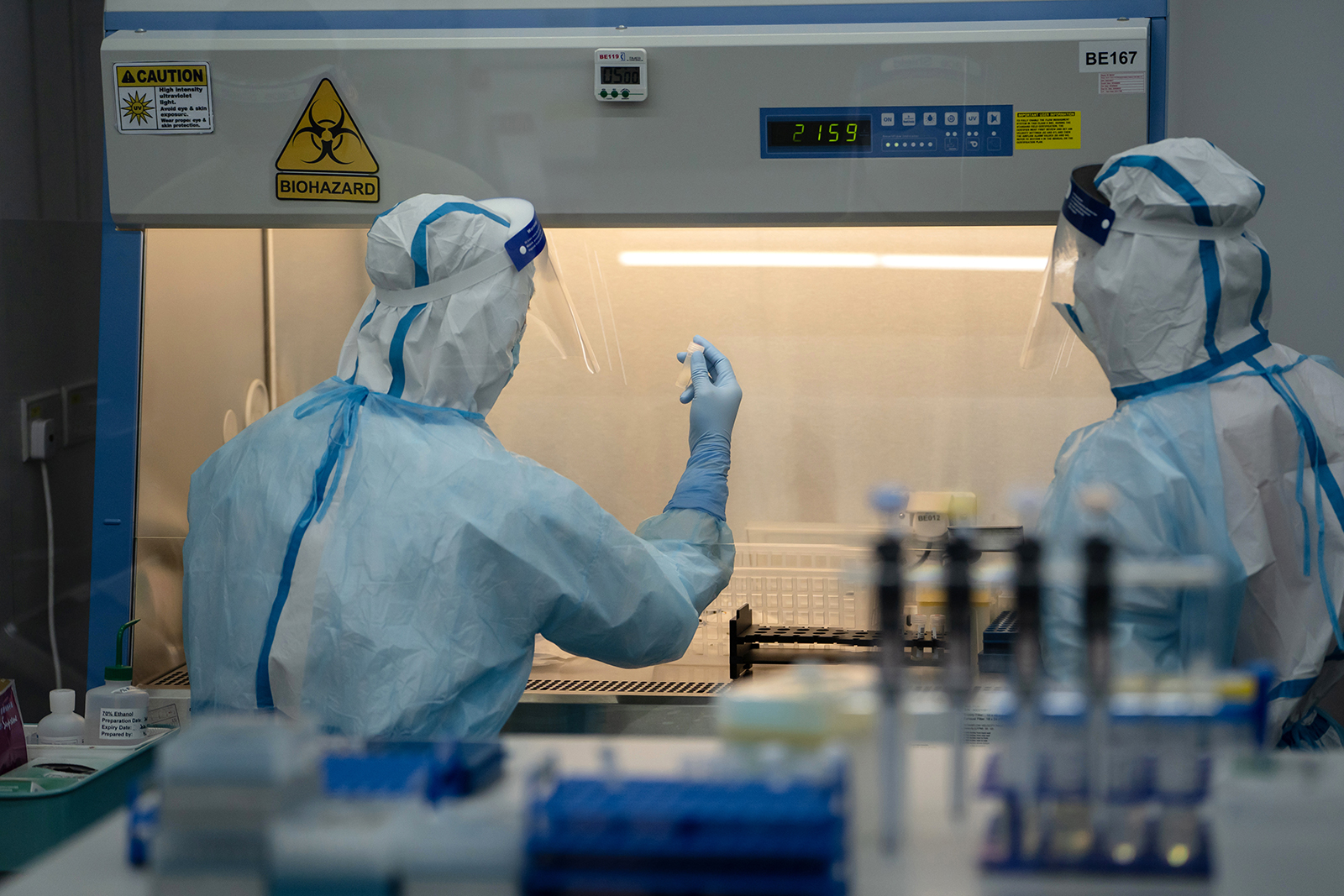 A lab technician wearing a protective suit holds up a saliva sample for RT-PCR Covid-19 testing at Prenetics Ltd.'s laboratory in Hong Kong, China on July 31. Roy Liu/Bloomberg/Getty Images
A lab technician wearing a protective suit holds up a saliva sample for RT-PCR Covid-19 testing at Prenetics Ltd.'s laboratory in Hong Kong, China on July 31. Roy Liu/Bloomberg/Getty ImagesChinese authorities have identified 43 new coronavirus cases, including 36 locally transmitted infections on Sunday, the National Health Commission said on Monday.
Of the 36 locally transmitted cases, 28 were found in the western Chinese region of Xinjiang, while eight were found in Liaoning. The seven imported cases were discovered across the provinces of Liaoning, Guangdong, Shandong and Jiangsu. Eleven asymptomatic cases were reported
China has confirmed a total of 84,428 cases of Covid-19 and 4,634 virus-related deaths.
India reported nearly 53,000 more cases of Covid-19
From CNN's Manveena Suri in New Delhi
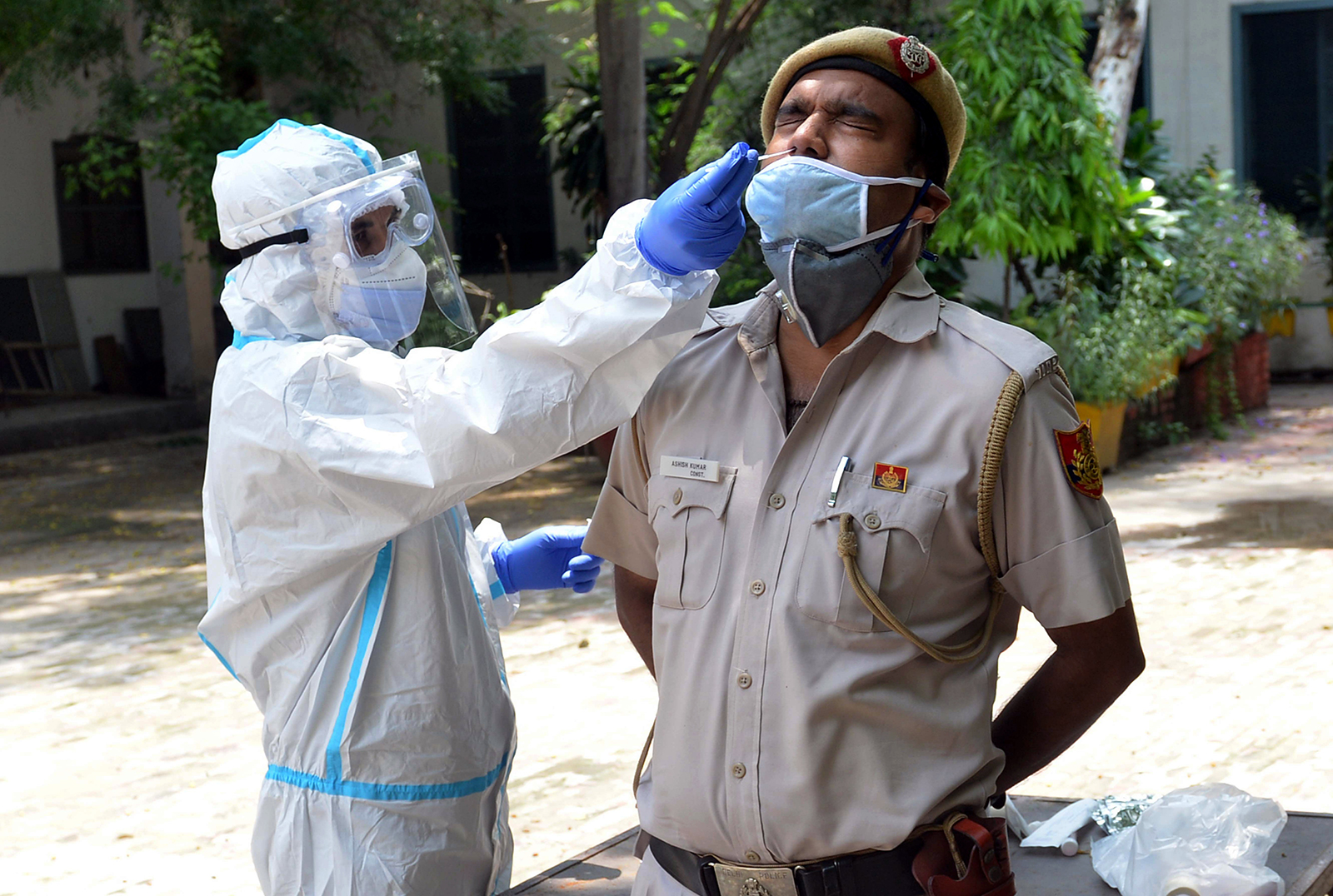 A health worker collects a sample for Covid-19 testing from a police officer in New Delhi, India on August 2. Partha Sarkar/Xinhua/Sipa USA
A health worker collects a sample for Covid-19 testing from a police officer in New Delhi, India on August 2. Partha Sarkar/Xinhua/Sipa USAIndia registered 52,972 cases of coronavirus on Monday, bringing the total number of confirmed cases nationwide to 1,803,695, according to the country’s Health Ministry.
Last week was the deadliest week the country has seen since the pandemic began. More than 5,300 Covid-19-related fatalities were identified, while 315,000 new cases were reported during the same period
At least 38,135 people have been killed by the virus in India as of Monday. More than 1,186,203 people have recovered -- about 65% of all cases.
New travel guidelines: On Monday, India’s Ministry for Health and Family Welfare issued new guidelines for international air passengers coming into the country.
The guidelines, which come into effect from August 8, include the following:
The guidelines also allow that states to develop their own quarantine and isolation protocols.
However, it's not clear how many people are actually planning on coming to India. Nearly all international passenger flights into the country are banned until August 31, a measure that has been in place for more than five months. The only flights into the country from abroad are to repatriate Indian nationals.
Domestic flights resumed on May 25, and cargo flights are still running.

 5 years ago
517
5 years ago
517 